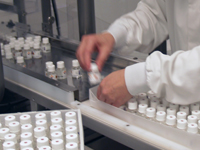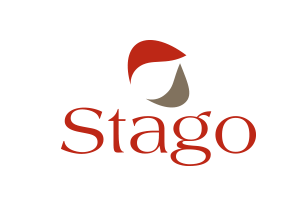Transforming Innovations into High Performance, Standardised Products Available to All Laboratorie
The DISC (Industrial Management & Supply Chain) brings together numerous forms of expertise covering industrialisation, production, product management and logistics in order to meet customer requirements for customers in all the countries in which our products are distributed.
The worldwide market for laboratory analysis is extremely varied in terms of medical practice, organisation, legislation, regulatory requirements and funding methods, and Stago must be the "solution provider" in all of these sets of circumstances.
This department also has staff specialising in "ongoing improvement" (Validation of Methods, Metrology, Change Management), supply, purchasing, engineering and maintenance.
Ensuring lasting satisfaction among all our customers is our ultimate goal, which is fully understood and shared by all of our teams.
Broad-Ranging Activities and Expertise

- Even the most incredible innovation would have no meaning and no future without the ability to transform it into a standardised industrial product.
- In terms of laboratory analysis, reliability and reproducibility of the analytical results delivered by a laboratory constitute key factors in the health care subsequently provided to patients.
For this reason, the systems (analytical devices, reagents, consumables, services) that we sell must be beyond reproach.
3 Key Areas of Expertise
- Instrumentation: wide-ranging expertise in robotics, data processing, electronics, electro-mechanics, optical measurement, methodology, micro-fluid science, and so on
- Reagents: control over method process standardisation, "high volume" production, control of starting materials and biochemistry techniques (e.g. enzymology, immunology, purification) and in chemistry
- Consumables: primarily unit measuring cells (development, industrialisation, etc.)
From Industrialisation to the Final Customer, Worldwide
Manufacturing Expertise
Manufacturing activities follow a logic of continual improvement in order to allow us to:
- Ensure processes remain as fluid as possible so as to be constantly able to supply our customers
- Optimise delivery times
- Continually offer customers robust products of the highest possible quality
In order to meet the expectations of our customers, both direct (laboratories) and indirect (distributors, subsidiaries), we must take particular care regarding:
- Safety of production facilities
- Optimisation of ergonomics (assembly, integration) in order to ensure better productivity (in both qualitative and quantitative terms)
- Reduction of cycle times (i.e. the time required to manufacture a product; the shorter this time, the less risk of stock shortages)
- Integration of Quality Control in all stages of manufacturing processes
Expertise in Purchasing of Starting Materials
- The ability, starting from the "upstream" stages of product design, to select the best "article-supplier" teams consistent with the requirements of both "designers" and "producers" in order to ensure that customers' high levels of quality expectations are successfully met.
- Following selection, suppliers are monitored and evaluated throughout the entire life cycle of products.
- Stago currently has a panel of more than 250 active suppliers for 3000 items used as starting materials and ingredients.
Ongoing improvement in this area is essential to:
- Secure supply of starting materials and ingredients
- Optimise stock levels
Expertise in Distribution
Since Stago exports 85% of its production, complete control of logistics is absolutely vital and consists of expertise in freight management (air, maritime, cold chain, packaging, customs regulations etc.) and in stock and process flow management.
For its worldwide distribution, Stago currently uses two logistics platforms and satellite warehouses in accordance with geographical requirements.
As well as dispatching goods directly to end customers and distributors, these centres also provide support to technical departments as regards rapid provision of tools and spare parts.
Continuous improvement processes are in place in particular to reduce order processing and preparation times.
Throughout the entire company, but particularly in the Research & Development as well as the Industrial and Supply Chain Departments, a carefully structured management method developed along the lines of "Lean Six Sigma" (originally implemented by Motorola) is used to provide a more global view of processes in order to ensure continual improvement of the quality of our products and services. Other simple tools such as Visual Management or the 5S, designed to optimise network organisation, are also employed by Stago.
